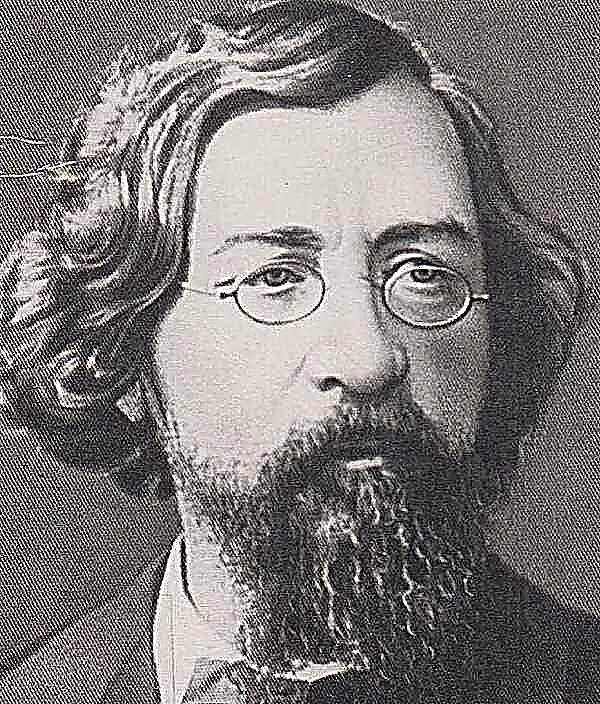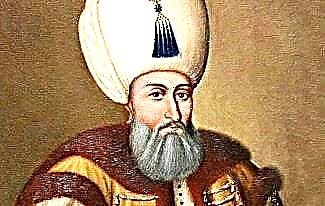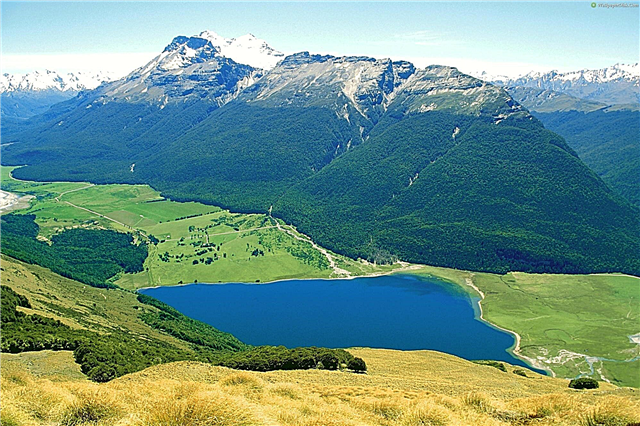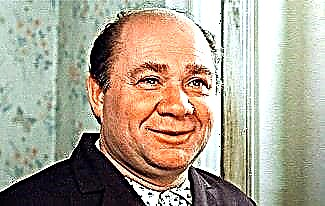Alfred Bernhard Nobel (1833-1896) - Swedish chemist, engineer, inventor, entrepreneur and philanthropist. Creator of dynamite and founder of the Nobel Prize. The owner of the Bofors company focused on chemical and cannon production. He had 355 different patents for his inventions.
There are many interesting facts in the Nobel biography, which we will talk about in this article.
So, before you is a short biography of Alfred Nobel.

Biography of Nobel
Alfred Nobel was born on October 21, 1833 in Stockholm. He grew up in the family of engineer and inventor Emmanuel Nobel and his wife Andrietta. The couple had 8 children, of which only four managed to survive - Alfred, Robert, Ludwig and Emil.
Childhood and youth
The head of the family was a talented architect, inventor and entrepreneur. He managed to establish the production of military products, which provided him with financial prosperity.
The Nobels have repeatedly changed their place of residence, having managed to live in Finland and Russia. In St. Petersburg, at Emmanuel's enterprise, sea mines were manufactured and rapid-fire guns were cast, which were later actively used during the Crimean War.
An interesting fact is that Emmanuel Nobel was engaged not only in military affairs. He made a significant contribution to the development of steam heating systems for buildings. He was also the creator of modern plywood and a machine for making cart wheels.
Alfred from an early age watched his father's work with great interest, being carried away by the principles of the device of various equipment and explosives. He studied at home with his brothers and received an excellent education.
Chemistry and language studies were especially easy for Alfred. Curiously, he was fluent in English, Swedish, French, German and Russian. When he was barely 17 years old, his father sent him to study in the United States and Europe.
Science and inventions
During his stay in France, young Nobel met with the creator of nitroglycerin, Ascanio Sobrero. Soon he left for America, where he deeply studied chemistry for about a year.
In 1857 Alfred Nobel filed his first patent for a gas meter. He explored the properties of solar energy with great enthusiasm, conducting chemical and physical experiments in this area with colleagues.
Returning to the Russian Empire, the guy took up the business of family businesses that took military orders for the Russian army. Later, Alfred and his family returned to Sweden, where he devoted all his free time to researching explosives.

Nobel paid particular interest to the properties of glycerin, which was distinguished by its safe production and use in military affairs. This led to the fact that in 1863 he invented the detonator.
In the fall of 1864, at one of the Nobels' factories, a utility room exploded, where nitroglycerin was stored. The explosion killed 5 people, including Alfred's brother - Emil. The death of his son seriously crippled the health of the head of the family, who soon suffered a stroke.
Three years later, Alfred Nobel received a patent for dynamite. It was these explosives that brought him the greatest popularity and monetary profit. Dynamite began to be widely used in different countries in the mining industry and the construction of large transport networks.
In 1875, the scientist introduced the world to explosive jelly, which was even more powerful than dynamite, and then patented ballistite. At the same time, he succeeded in developing a number of household devices: a steam boiler, a barometer, a refrigerator, a gas burner, etc.
Over the years of his biography, Alfred Nobel received 355 patents for inventions that were made in various fields of science. He is the author of a number of scientific and fiction books. In particular, the man was fond of history and philosophy.
Among Nobel's friends were many famous painters, scientists, writers, political and public figures. In 1884 he became a member of the Royal Swedish Academy of Sciences, and a few years later received his doctorate.

By that time, together with his brothers, he acquired a block of shares in the Baku oil field. The development of oil fields made the Nobels millionaires. They were at the peak of their popularity, often receiving various awards for their achievements in science and participating in major events.
In 1888, by mistake of journalists, the press reported the death of Nobel, confusing him with his brother Ludwig, who died in Cannes. When Alfred began to read obituaries about himself in various publications, he experienced a strong shock. The newspapers described him as a "millionaire on blood" and "a merchant in explosive death."
As a result, the scientist wanted to make every effort in order not to remain in history a "villain of a world scale." In 1889 he attended the International Peace Congress.
Nobel Prize
After reading the premature obituary, Alfred Nobel bequeathed his fortune for the establishment of the Nobel Prize. This prize was to be awarded to those people who have achieved the greatest achievements in the following areas: physics, chemistry, medicine, literature and for their contribution to the strengthening of peace.
As a result, a fund was created in which Nobel's capital was kept in the form of stocks and bonds. Profits from securities were to be divided equally between the winners of 5 prizes every year.
Today, the Nobel Prize is still awarded annually to the most distinguished physicist, chemist, physician, writer and person who has made the greatest contribution to the achievement of peace.
Personal life
Over the years of his personal biography, Alfred Nobel was never able to find a second half for himself. Until the end of his days, he lived alone and was often depressed. Nevertheless, according to biographers, the scientist fell in love three times.
The first love of the inventor was the Russian girl Alexandra, who refused to marry him. After that, Alfred became interested in Bertha Kinski, who worked as his secretary.
After a few years of a whirlwind romance, the girl left him, marrying Baron Arthur Gundakkar von Sutner. Alfred's third and longest relationship was with Sophie Hess of Vienna, whom he met in 1876.
Death
Alfred Nobel died on December 10, 1896 at the age of 63. The cause of his death was a stroke. After reading the will and before the execution of the will of the deceased, 3 years passed. In 1901, the first monetary awards were paid to distinguished scientists.
Photo by Alfred Nobel

















